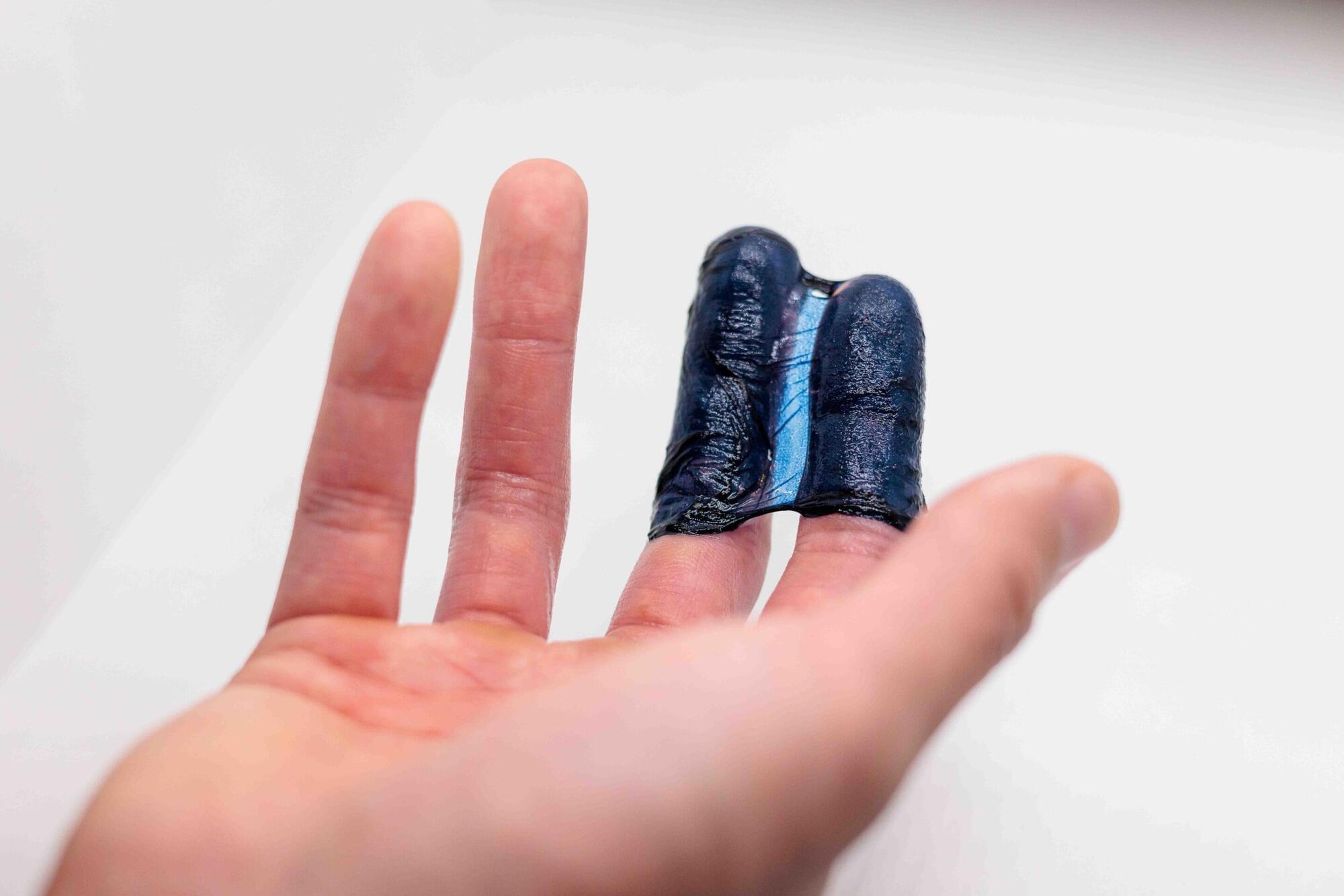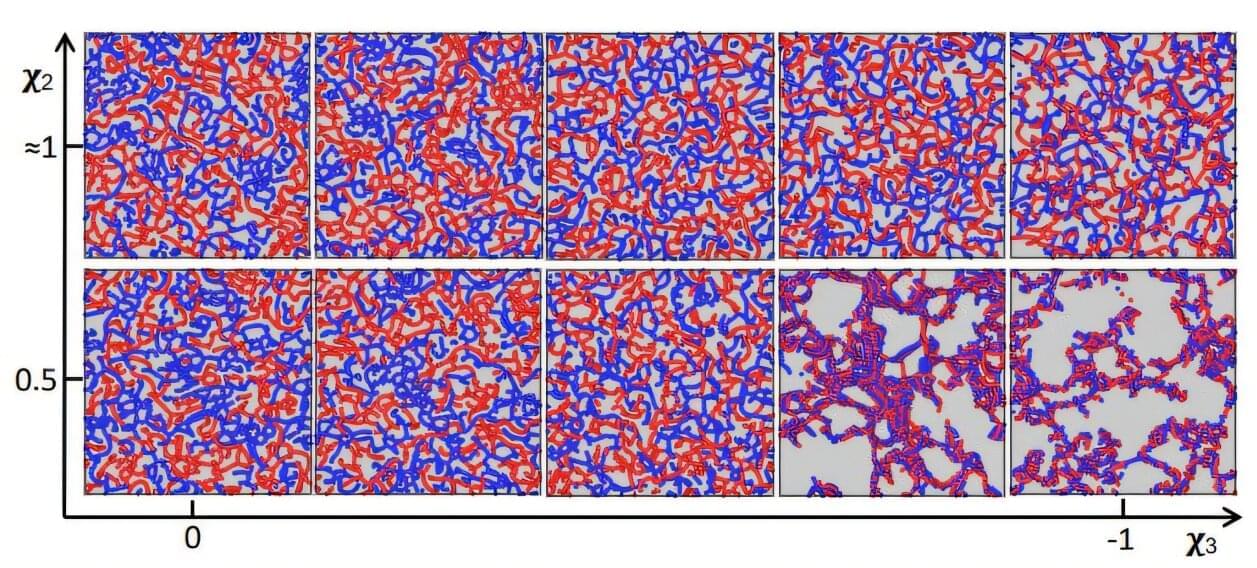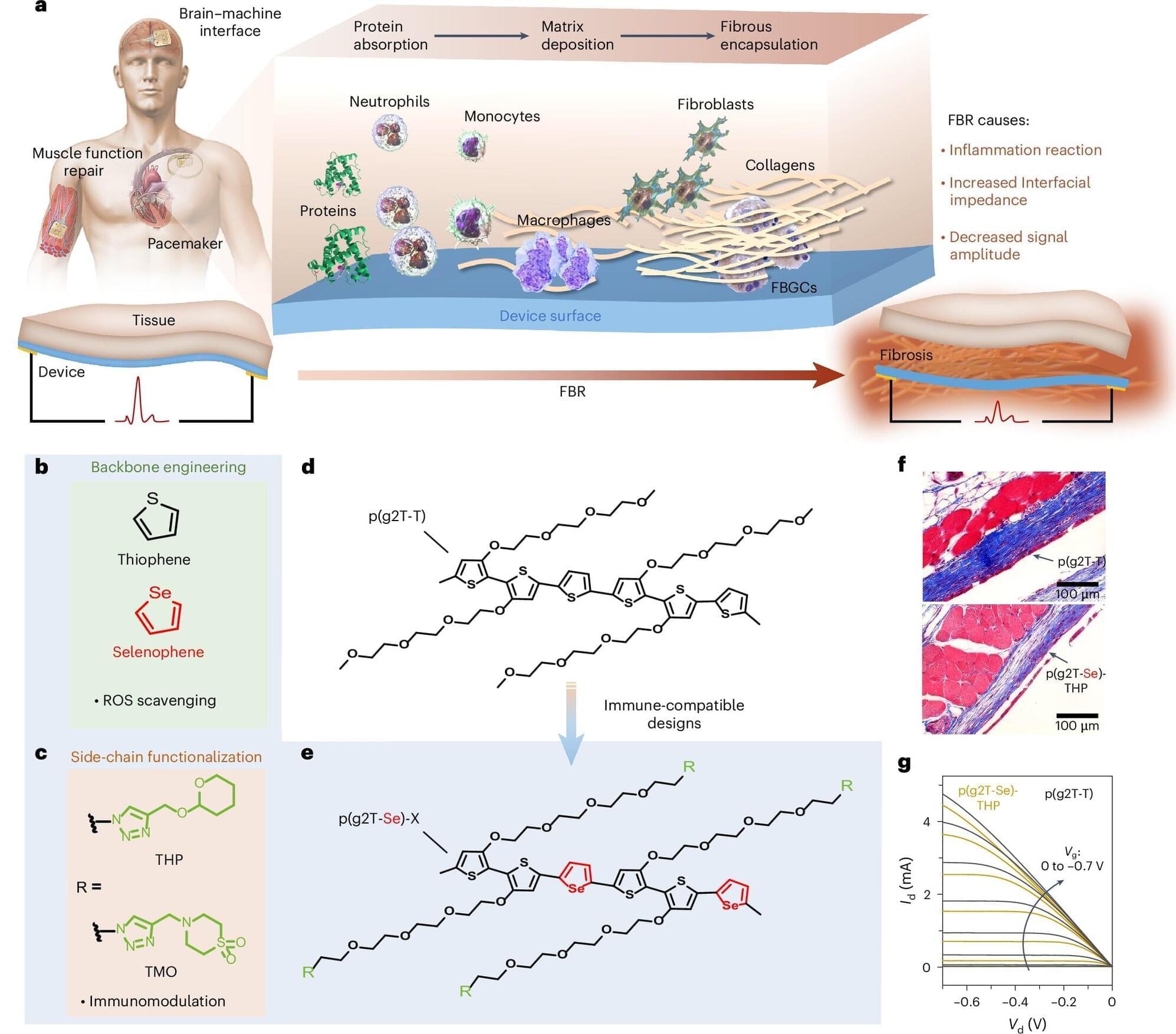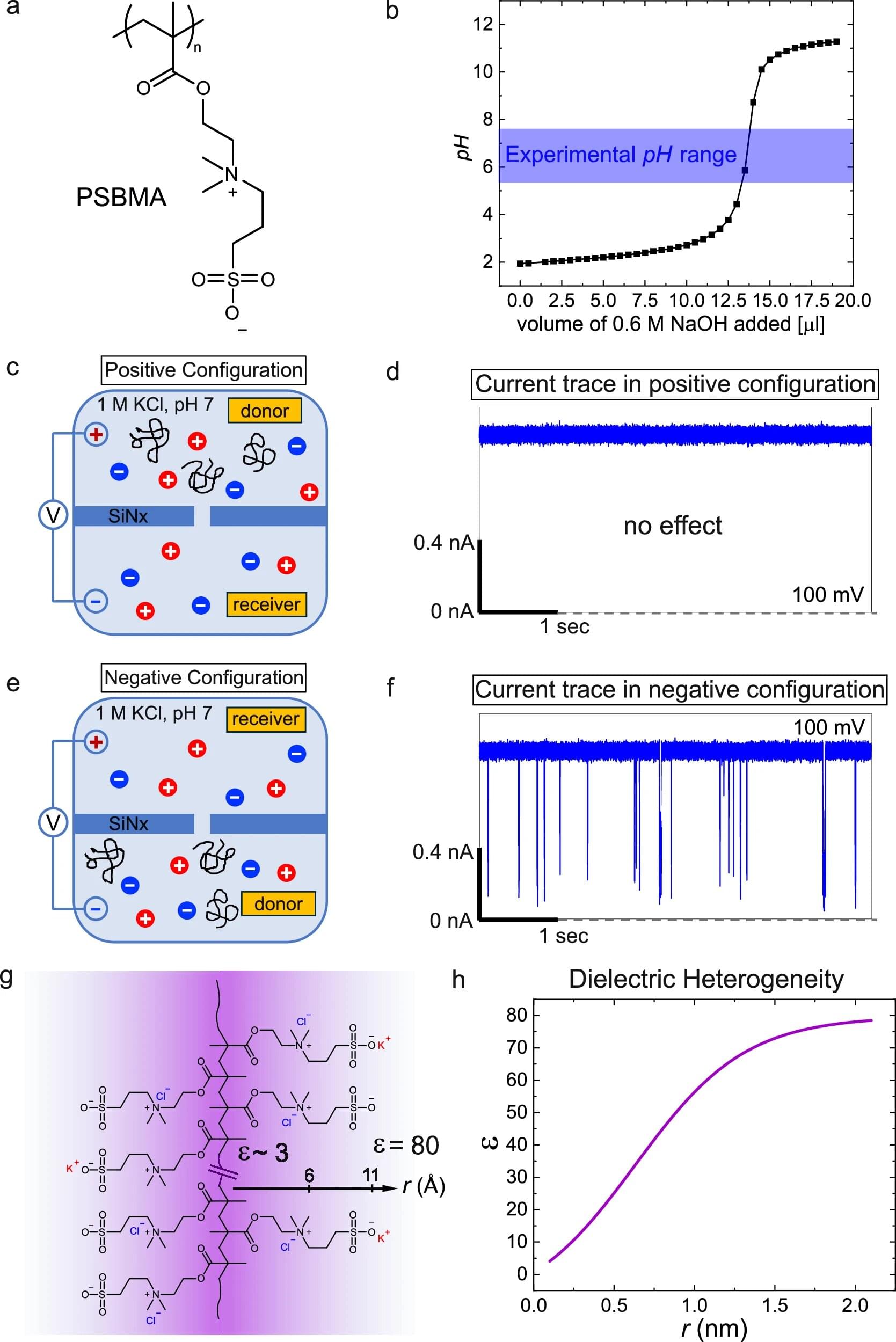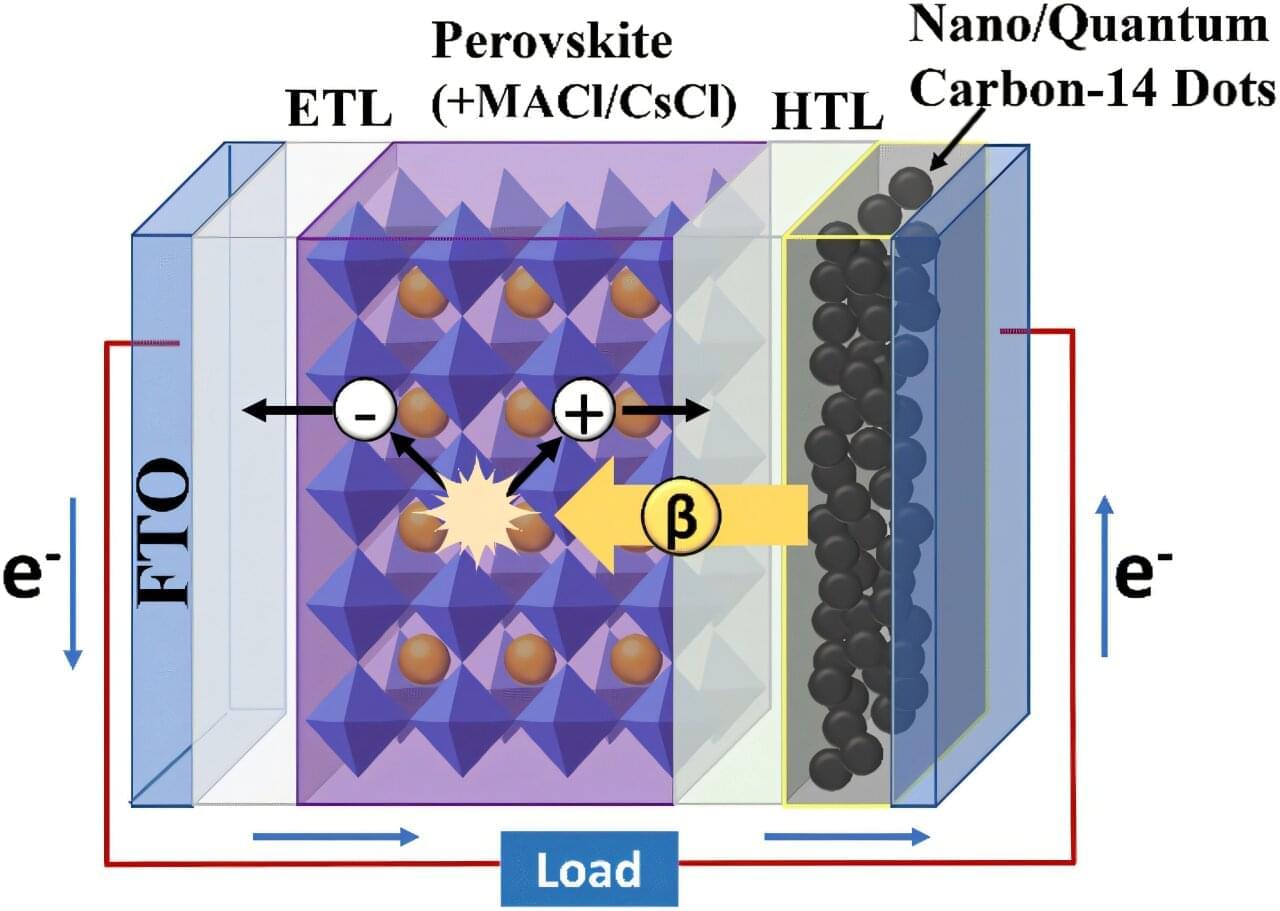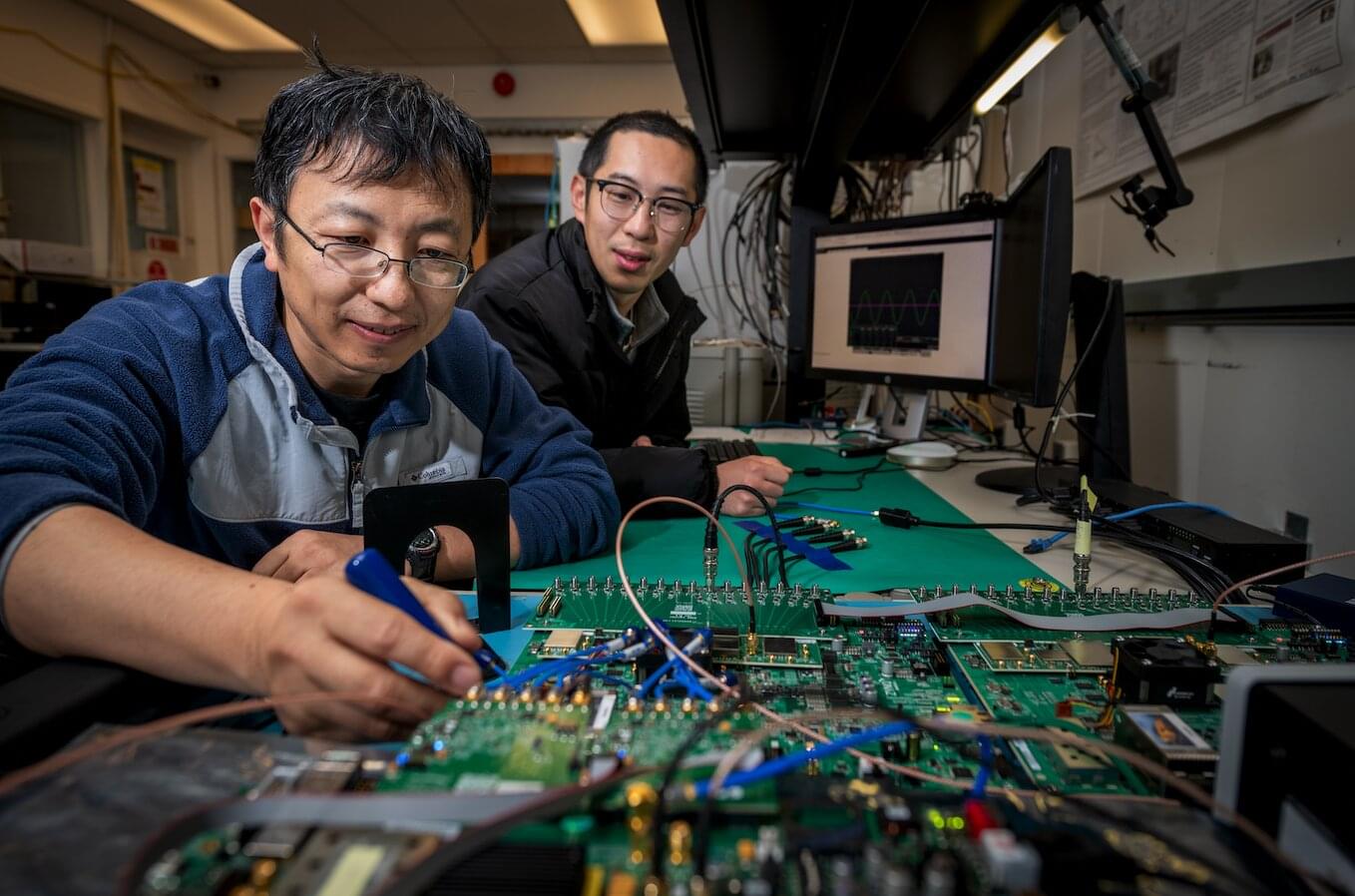The ideal material for interfacing electronics with living tissue is soft, stretchable, and just as water-loving as the tissue itself—in short, a hydrogel. Semiconductors, the key materials for bioelectronics such as pacemakers, biosensors, and drug delivery devices, on the other hand, are rigid, brittle, and water-hating, impossible to dissolve in the way hydrogels have traditionally been built.
A paper published today in Science from the UChicago Pritzker School of Molecular Engineering (PME) has solved this challenge that has long stymied researchers, reimagining the process of creating hydrogels to build a powerful semiconductor in hydrogel form. Led by Asst. Prof. Sihong Wang’s research group, the result is a bluish gel that flutters like a sea jelly in water but retains the immense semiconductive ability needed to transmit information between living tissue and machine.
The material demonstrated tissue-level moduli as soft as 81 kPa, stretchability of 150% strain, and charge-carrier mobility up to 1.4 cm2 V-1 s-1. This means their material—both semiconductor and hydrogel at the same time—ticks all the boxes for an ideal bioelectronic interface.
